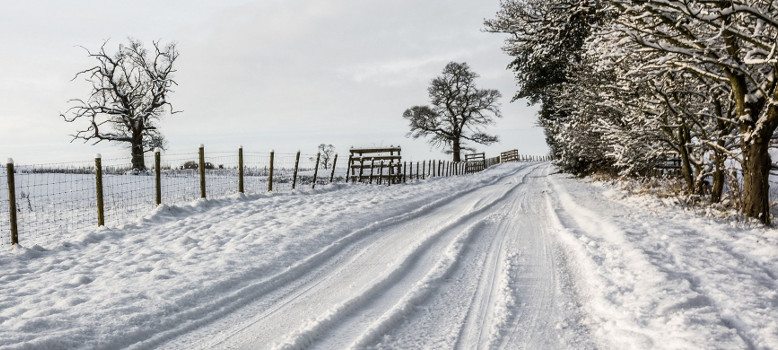
Teagasc has issued advice to farmers to stay safe and protect their farms and livestock during the expected difficult weather conditions during Storm Emma.
Stay safe
- Before going out on your land always tell someone where you are going, and how long you will be gone for
- Wear suitable layers of clothing
- Carry a charged mobile phone and a torch
- Have grit and salt available to ensure safe access to sheds
- If searching for animals in snow, wear high visibility clothing so you can be easily seen.
Livestock
- Cattle can cope with low temperatures provided they have plenty of feed. Even young calves are not seriously affected by low temperatures if they have shelter from chilling wind and driving snow/rain.
- Plan how you will get food and water to your stock.
- It is vital that all stock have access to water – check supply in sheds regularly and make provision for alternative sources if shed supply is prone to freezing e.g. plastic drinkers
- Dairy cows are likely to be back indoors full-time, farmers need to watch for mastitis, cubicle space, cleanliness of housing etc.
- increase supplementation by c. 2 kg/head/day to compensate for loss of spring grass
- While the extreme weather is going to delay the turnout of replacement heifers to grass there is probably no need to introduce extra concentrates to these animals; once the snow melts these animals can be turned to grass.
Farm Yards
- Sloped/high traffic yard areas for stock should be cleaned in advance of snow and treated with salt
- From a milk collection point of view and tanker access, farmers should have grit or salt in place, especially if milk storage days is an issue
Machinery
- Prevent your machinery and water supplies freezing up:
- Have thermostatically controlled heaters in the pump house
- Regarding the parlour freezing, farmers should thoroughly drain the plant after every milking and, where possible/ necessary (very open parlours), have hot air blowers or infra-red lamps to keep the lines from freezing
- If a farmer cannot drain his milking machine fully, then an option is to leave a salt solution in the milking line at the rate of 0.5 kg salt per 5 gallons of water, but this must be rinsed before milking to remove salt traces
- An insulation blanket/plastic sheet, placed at the entrance to the milking parlour, may help prevent milking machines freezing up
- Drain wash-down pumps
- Check the antifreeze levels in all your engines
Severe weather challenges all of us. Activities that we take for granted can become difficult or even hazardous when severe weather occurs. However, by taking some simple steps you can reduce the impact of such events.
The main message is simple – be prepared, stay safe and know where to find help should you need it.

